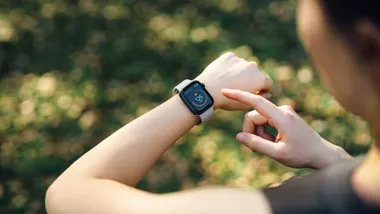Sifting through the marketing jargon of descriptive labels on foods these days can leave even a nutritionist questioning which way to go.
Low-fat, lite, light, fat-free, sugar-free, % free, no added, low, diet are just a few of the terms plastered on many packaged goods competing for our grocery dollars and confusing consumers everywhere.
There is currently no consistency nor regulation of using such terms and so the terms are highly subjective and can mean anything from what the manufacturer wants you to believe to what you think it means to what is really in the product or anything in between. It can be literal as in fat-reduced milk or it can be not so clear as in no added sugar, but naturally occurring sugars are allowed… so where to start if you’re tyring to lose a few kilos or just tidy up your diet a bit?
Learn the lingo
The big question is ‘what do all these terms really mean?’ They vary between different products and different brands of the same product. This is a major problem according to a recent consumer report by FSANZ www.foodstandards.gov.au
The marketing plans for these products are designed to make you think they will deliver what you need, want or assume from them. But is the impression you get accurate? Shouldn’t diet food be inherently good for you? Not the case at all. Even the term ‘good for you’ is relative and depends on your health profile and your goals. It may mean balanced, natural foods, or aiding weight loss, or a diet low in sodium and cholesterol for example.
Low fat, reduced fat, low energy, sugar free, ‘no added’ — are these descriptive claims even accurate? They are great marketing that’s for sure, but it’s all relative. The following describes some terms used for ‘diet’ foods and their ‘intended and perceived meanings which are not always consistant.
No added:
Light/lite:
Low or reduced:
Diet:
Free, % free:
The reason is, as cholesterol became a popular health issue the marketers knew consumers would be looking for items without cholesterol. But this does not mean no or low fat. Buyer beware! And don’t even get me started on the ‘low-carb’ product ranges which have inevitably emerged due to low-carb diet crazes. ‘Low-carb’ pasta, ‘low-carb beer—Puhlease!! Sure, it’s carbs in the pasta and beer that’s bad… it couldn’t possibly be the readily-stored fat in the creamy pasta sauce or the preferentially-used, high energy content of alcohol. Anyone who still believes carbohydrates are bad seriously needs to find out what they are, what they do and about proper nutrition from a reputable scientific source.
Justifications and false securities
But most diet foods I would not necessarily consider a good part of regular healthy diet, I would consider them a means to an end when not using them has it’s own risks.
Diet soda has caffeine, artificial sweeteners, phosphoric acid, sodium — all yuk! — has initial uses — get off sugar etc — but NOT long term.Plus some recent research which said it may interfere with estimating energy intake — so overeat.
Although warning labels have been removed, Saccharin has sufficient evidence that it is carcinogenic to lab rats and mice that I’m not interested in it as a regular part of my diet.
Aspartame has also been controversial with claims of a range of effects in independent testing from cancers to weigh gain, to headaches, dizziness, cramps, anxiety, vomiting and nausea.
Sucralose is very sweet (600 x sugar) and like all fake sugars helps train you (and children) to crave sweets. But this one contains chlorine and we don’t yet have all the information about digestion, absorption and long-term human use. I don’t want to be a lab rat, I don’t know about you…
Where there is smoke, there’s certainly a chance of fire and you must weigh wether it is worth the risk to you.
Adding an artificial sweetener tablet to your coffee or tea is just the tiniest amount of sugar compared to the accompanying muffin or biscuit! And diet sodas just contain so many undesirables it really is the best choice to find another regular drink or only drink occasionally.
Also, the ‘diet soda phenomenon’; people who drink diet soda lose less weight than those who drink regular soda. Research into their eating patterns and attitudes show this is because they eat more and higher energy food than they would otherwise which they justify with the fact they are drinking diet drinks.
Some use diet soda to get off a sugar addiction, this can be useful tool so long as you also reduce the total amount of sweet stuff you have. As fake sugar is also very sweet and will still train you to have a taste for sweets.
Diet sodas, are very acidic and can make you feel hungry due to increased stomach acid, so you eat more…
Why might you use these products?
What to look for:
Use for very obese where really need to lose weight drastically because at risk of other complications. Diabetics, chd, other disease sufferers?
Good for short term when need to cut energy consumption to lose weight. Good to substitute as lower energy density foods. BUT not taste great so good for short term. Also many have artificial products, chemicals, sugar/fat substitutes so if aiming for a more natural diet good short term only.
Also, taste! Only whole egg full-fat mayonnaise is really good and fat-free salad dressings leave much to be desired. The quality of taste and satiation can leave much to be desired and so in some cases you’re better off just eating something else rather than the ‘fake’ version. EG. 97% fat free chips? Lite chocolate bars, all taste terrible and you should just have a little of the real thing or ‘save up’ to have it once every week or two if you’re trying to lose weight.
Tips to avoid the traps
If something says fat free or sugar free don’t assume it’s also low in kilojoules or will help you lose weight. Fat free sweets contain so much sugar and a whopping amount of energy.
The biggest trap with diet foods is overeating. This can be because of justifying the excess as ‘OK because it’s diet food’, not realising the significant kilojoules still in the food or eating more because they are not satisfying. Having occasional real treats is good for your soul and can even help weight loss. The deprivation of strict diets often leads to bingeing and blowing it. But tread lightly and use portion control.
‘Diet’ sweets may have no fat or sugar but what the *#$! are they made of, and would you want it in you? They generally taste really bad and won’t satisfy your sweet tooth, so eat something else anyway.
With snacks usually made with a lot of fat and/or sugar such as chocolate, chips or ice cream, if you consider the reduced-fat or low-fat versions compare the nutritional information to the regular version and consider taste and how much you would eat of each. You may be better off with less of the real thing.
Read, read, read the nutritional panels every time. Make conscious informed choices. Don’t automatically believe what you’re told and consider the descriptive terms on the front as a guide, not an absolute truth. Question everything and find out the answers. Your health is worth it.
Remember the meanings of the terms may differ so find out if the claim means it is healthy for you and will help with your overall goals.
Consider why you would choose processed products, over natural foods. Specially formulated and promoted ‘diet’ foods are not cheap and you and your budget can be much healthier by filling your diet with more foods without labels at all such as fresh fruit and vegetables.
Using diet foods does not help establish good eating habits which is really the key to long term weight loss and health. They can help with short term energy reduction if used properly but what then? You stay on the diet products for good, go back to what you ate before and risk weight gain or find new, healthier ways to eat. I’d go with the last option first and skip the rest of it.
Some low-fat foods are useful as part of a healthy diet for adults. Choosing skim, low-fat or fat-reduced dairy lets you get more of what you need-calcium and protein – and less of what you don’t (fat). Getting used to the taste of low-fat dairy is easy and worth it to trim the kilojoules.
Don’t give low-fat, light or other diet products to young children, toddlers or babies unless under specific medical advice.
Avoid foods with artificial additives replacing fats and sugars. Opt for more natural foods and less processing.
Bottom line — no diet product will help you lose weight if you’re still ingesting too many kilojoules. And as lite, low fat, sugar free and diet products are rarely satisfying there is a very good chance you’re eating more of them and could potentially gain weight!
A low-fat or sugar or light diet without any specially formulated and expensive products is easier than you may think. If you get used to sourcing, preparing and eating healthier foods, you can continue this and always be better off no matter what faddish products appear on market. Try them if you like, if you can afford them, but buyers beware. Don’t let anyone convince you that you need them as you can most likely do better without most of them. Natural whole foods will win for nutritional, lifestyle, cost and overall health every time. -that quality of what you’re putting into your body and the cost in cash and health — what you’re really paying and what you’re really getting.
By the way, I test most of these products when they come out and my conclusion is; don’t bother with chips over 90% fat-free. They just aren’t even close and you’ll still want the real ones!!!











